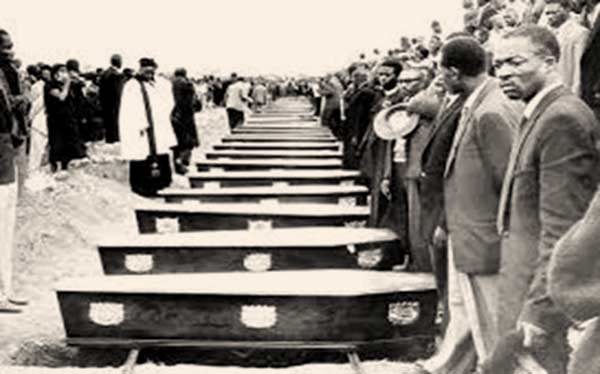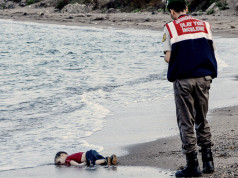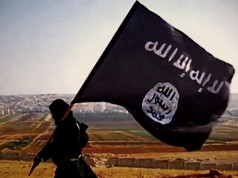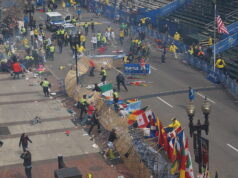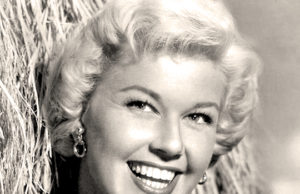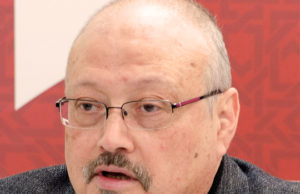Flickr / CC-BY-SA-3.0 / GFDL
1 – The Sharpeville Massacre
The Sharpeville massacre was an event which occurred on 21 March 1960, at the police station in the South African township of Sharpeville in Transvaal (today part of the province of Gauteng).
After a day of demonstrations against pass laws, a crowd of about 5,000 to 7,000 black protesters went to the police station.
The South African Police opened fire on the crowd, killing 69 people.
A storm of international protest followed the Sharpeville shootings, including demonstrations in many countries and condemnation by the United Nations.
The country found itself increasingly isolated in the international community.
Sharpeville marked a turning point in South Africa’s history, with it contributing to the banning of the PAC and ANC as illegal organizations.
The massacre was one of the catalysts for a shift from passive resistance to armed resistance by these organizations.
In present-day South Africa, 21 March is celebrated as a public holiday in honor of human rights and to commemorate the Sharpeville massacre.
2 – Israeli Soldiers Capture Adolf Eichmann in Buenos Aires
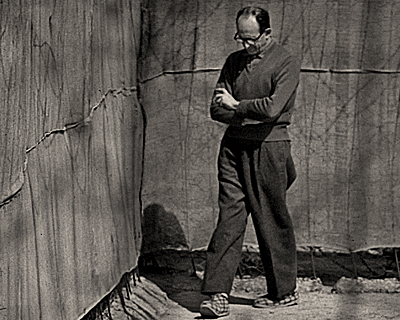
Eichmann was tasked with facilitating and managing the logistics of the mass deportation of Jews to ghettos and extermination camps in German-occupied Eastern Europe during World War II.
After Germany invaded Hungary in March 1944, Eichmann oversaw the deportation of much of that country’s Jewish population, with most of the victims being sent to Auschwitz.
There, between 75 and 90 percent were murdered upon arrival. By the time the transports were stopped in July 1944, it is estimated 437,000 of Hungary’s 725,000 Jews had been killed.
After Germany’s defeat in 1945, Eichmann fled to Austria. He lived there until 1950 when he moved to Argentina using false papers.
Information collected by Mossad, Israel’s intelligence agency, confirmed Eichmann’s location in 1960. A team of Mossad and Shin Bet agents captured Eichmann near his home in Buenos Aires May 11.
The agents brought him to Israel to stand trial on 15 criminal charges, including war crimes, crimes against humanity and crimes against the Jewish people.
He was found guilty on many of these charges and was sentenced to death by hanging and executed on 1 June 1962.
3 – Three of the Mirabal Sisters are Assassinated in the Dominican Republic
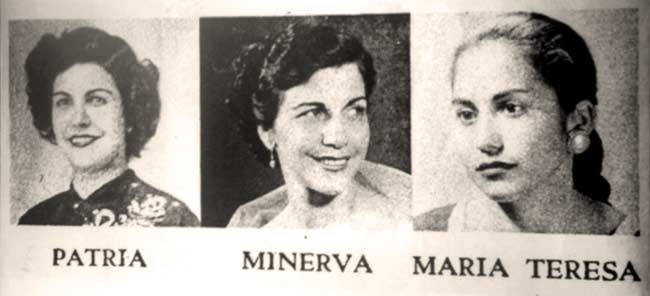
The Mirabal Sisters (Patria, Minerva, María Teresa & Dedé) were four Dominican sisters who opposed the dictatorship of Rafael Trujillo and were involved in clandestine activities against his regime.
Three of the sisters were assassinated on 25 November 1960. The assassinations turned them into symbols of popular and feminist resistance.
On 25 November, Patria, Minerva, María Teresa, and their driver, Rufino de la Cruz, were visiting María Teresa and Minerva’s incarcerated husbands.
On the way home, they were stopped by Trujillo’s henchmen. The sisters and de la Cruz were separated and clubbed to death.
The bodies were put back in their Jeep, which was run off the mountain road in an attempt to make their deaths look like an accident.
After Trujillo was assassinated in May 1961, General Pupo Román admitted to having knowledge that the sisters were killed by Victor Alicinio Peña Rivera, Trujillo’s right-hand man, along with other members of his secret police force.
In 1999, in the sisters’ honor, the United Nations General Assembly designated 25 November the International Day for the Elimination of Violence against Women.
4 – Longest Speech in UN History by Fidel Castro – 4 hrs, 29 mins
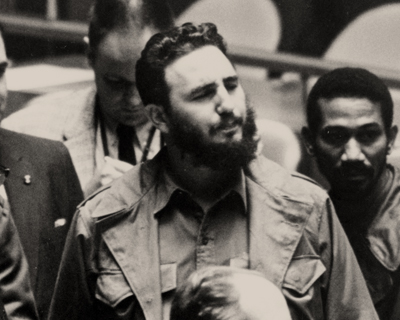
Fidel Castro holds the Guinness Book of Records title for the longest speech ever delivered at the United Nations: 4 hours and 29 minutes, on Sept. 29, 1960.
Castro’s presentation was primarily a complaint against U.S. policy toward his country and interference in their internal affairs.
At many points during the speech, he linked Cuba’s struggles in gaining and defending its independence from US imperialism with the problems faced by other colonial countries.
He also warned his colleagues from Latin America, Africa, and Asia that they could expect similar treatment if they carried out a just agrarian reform or touched the holdings of the monopolists.
However, this was not Castro’s longest ever speech. His longest speech on record was in Cuba, clocking in at 7 hours and 10 minutes at the III Communist Party Congress in 1986.


